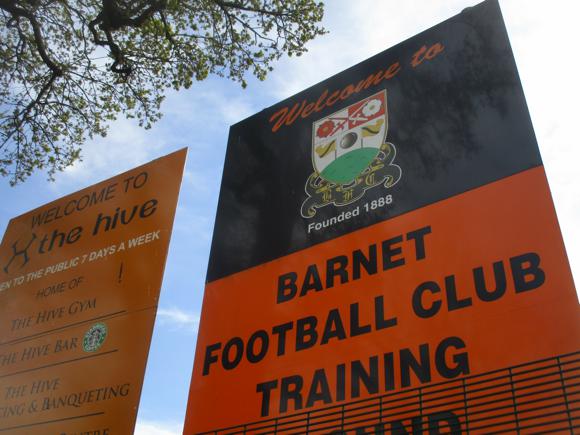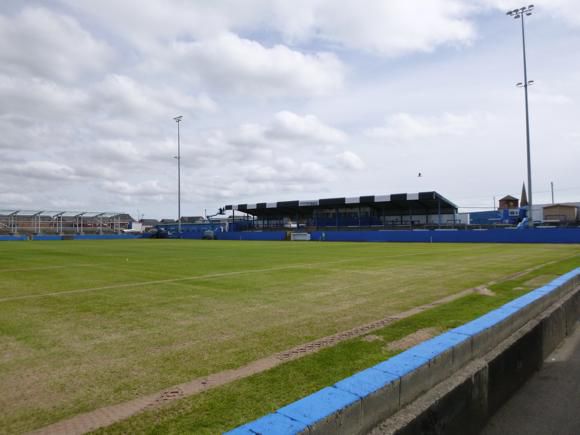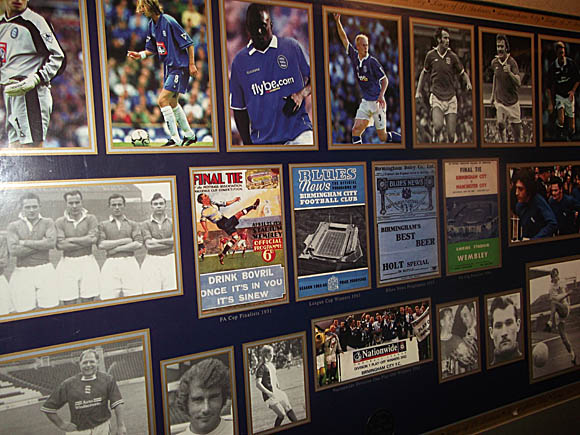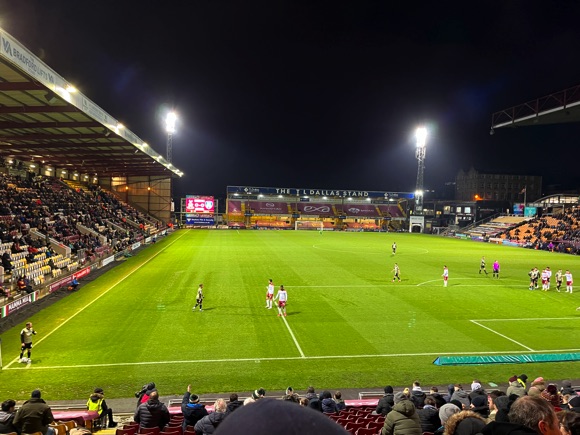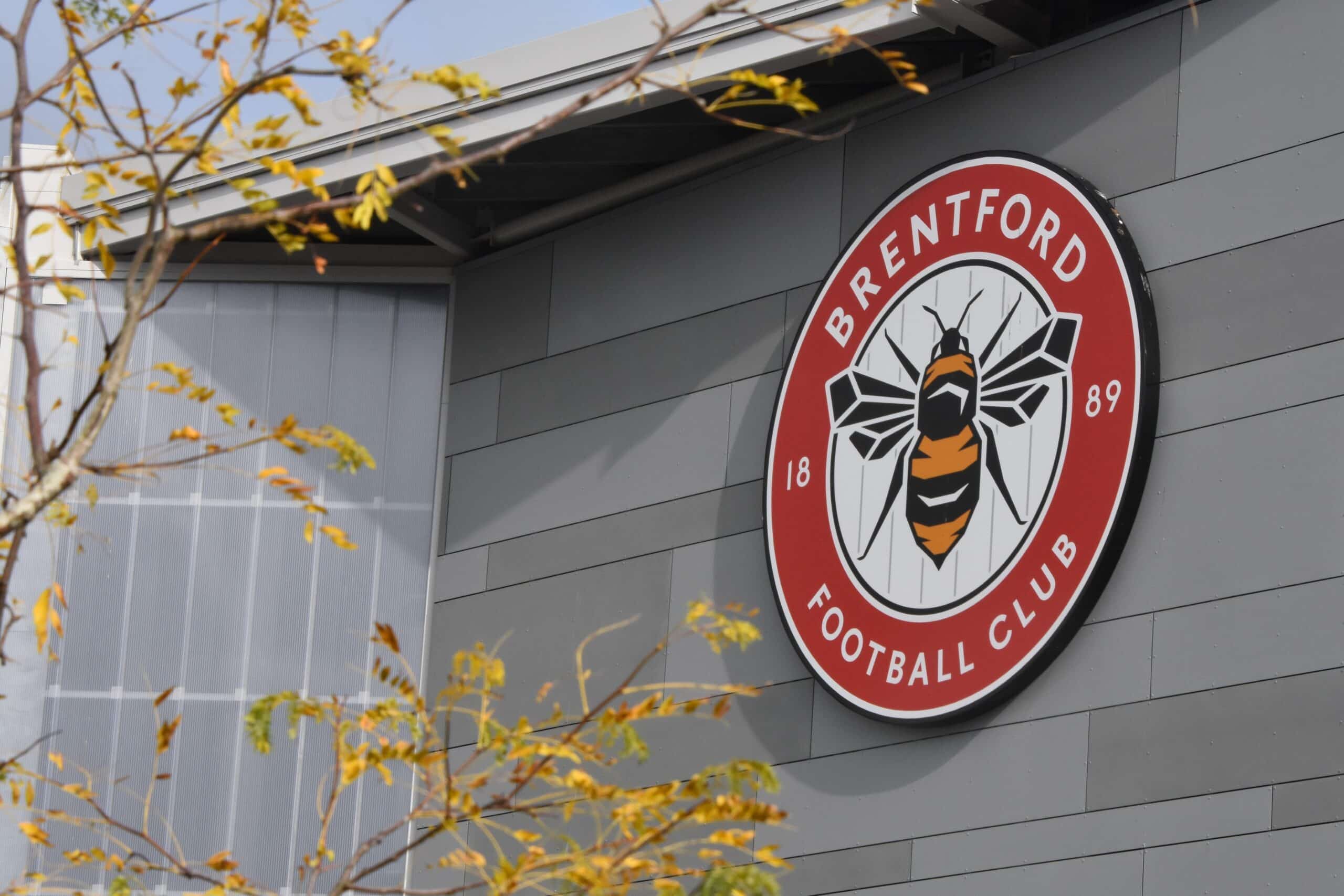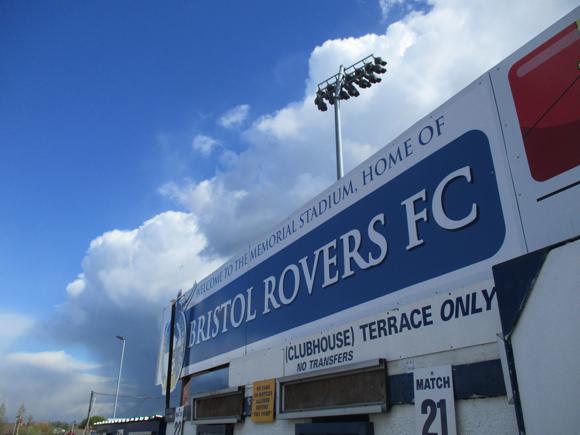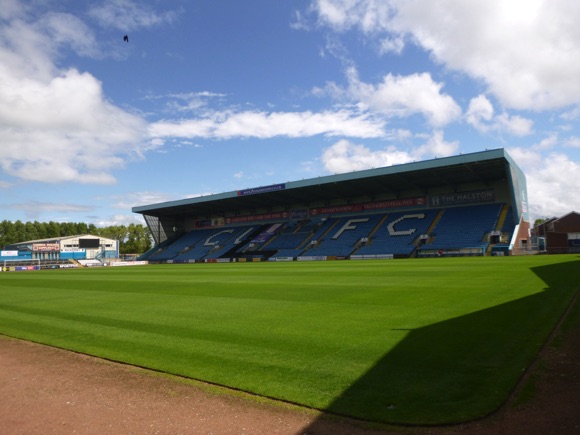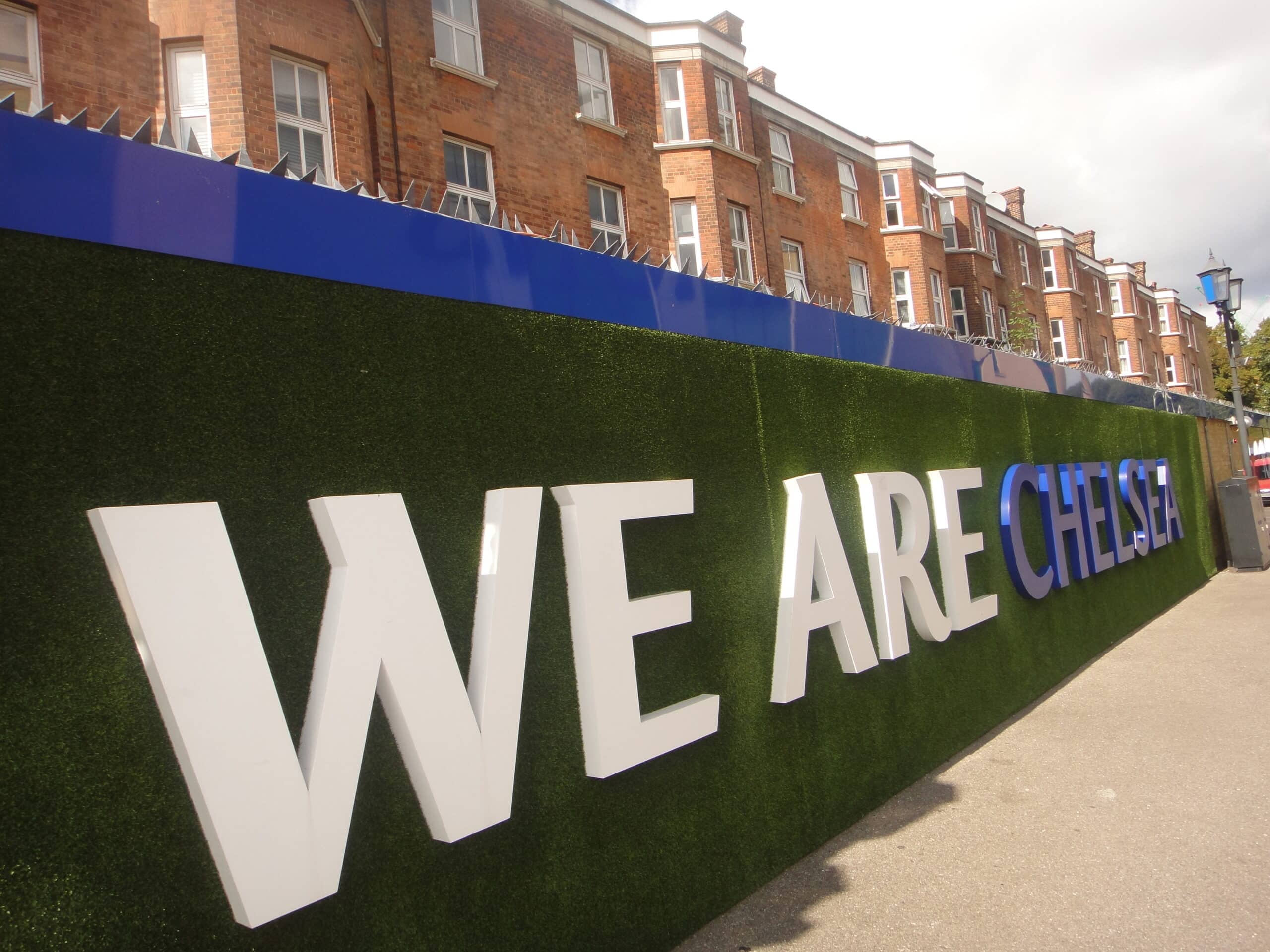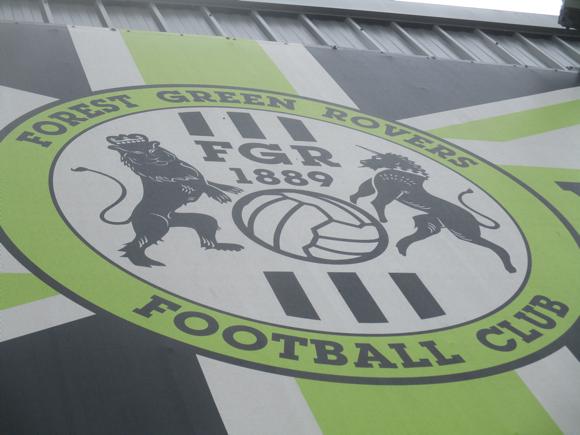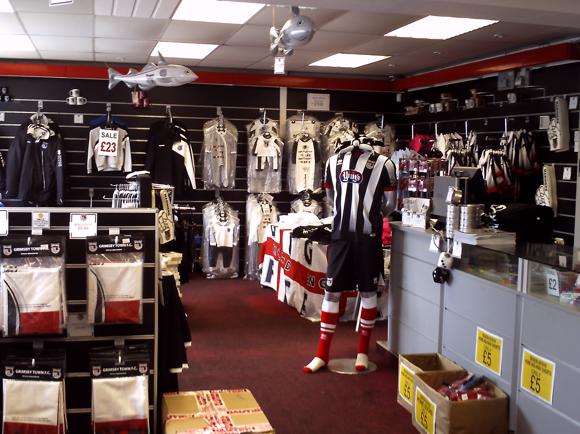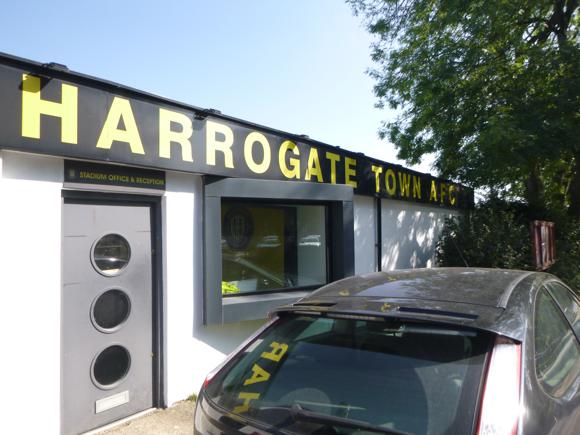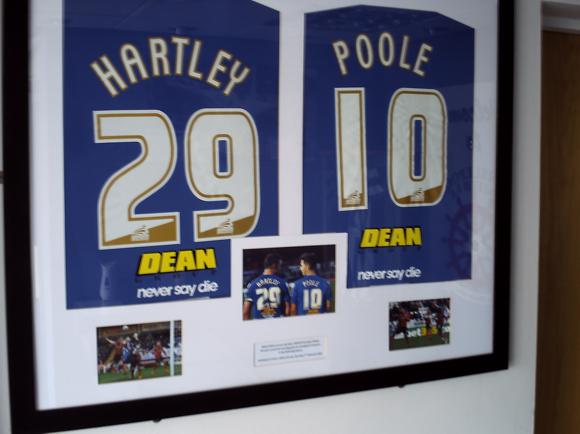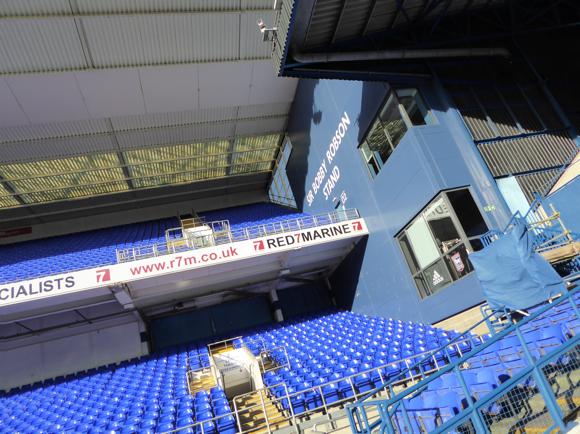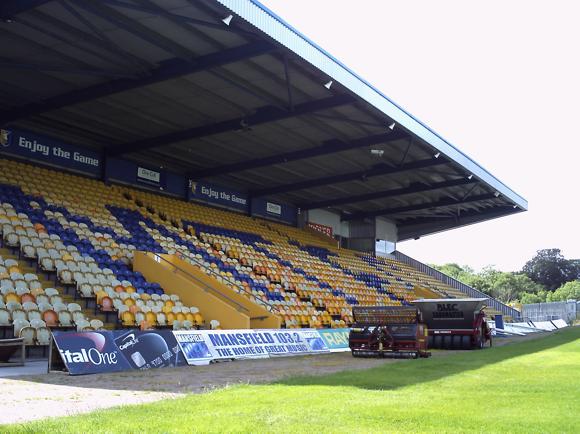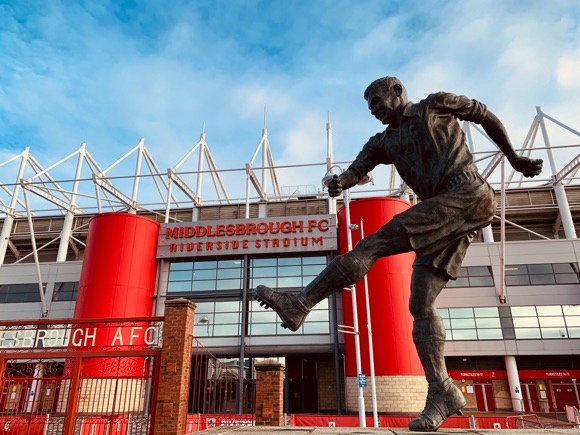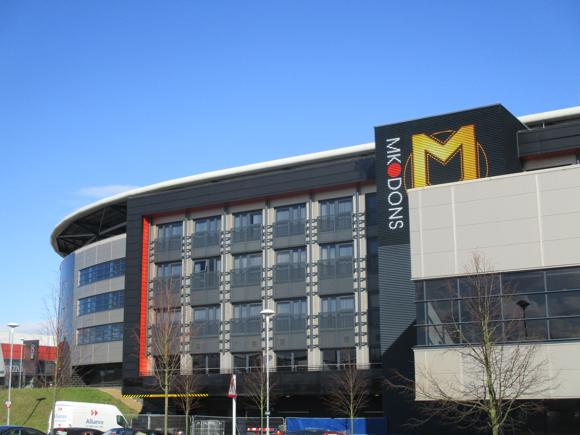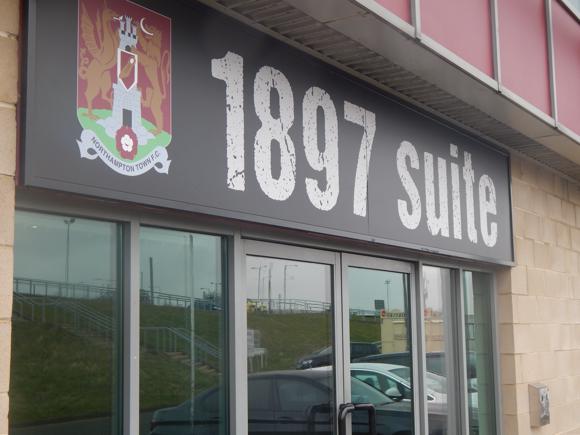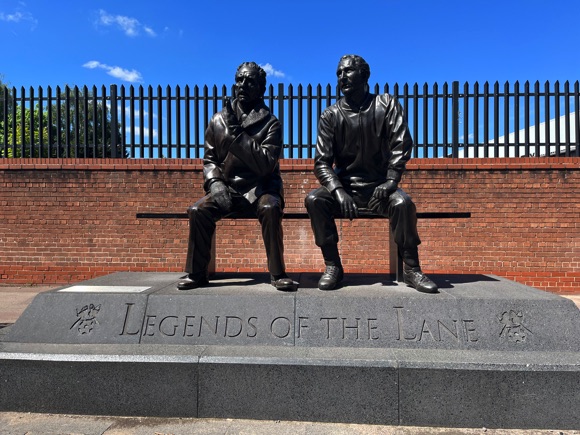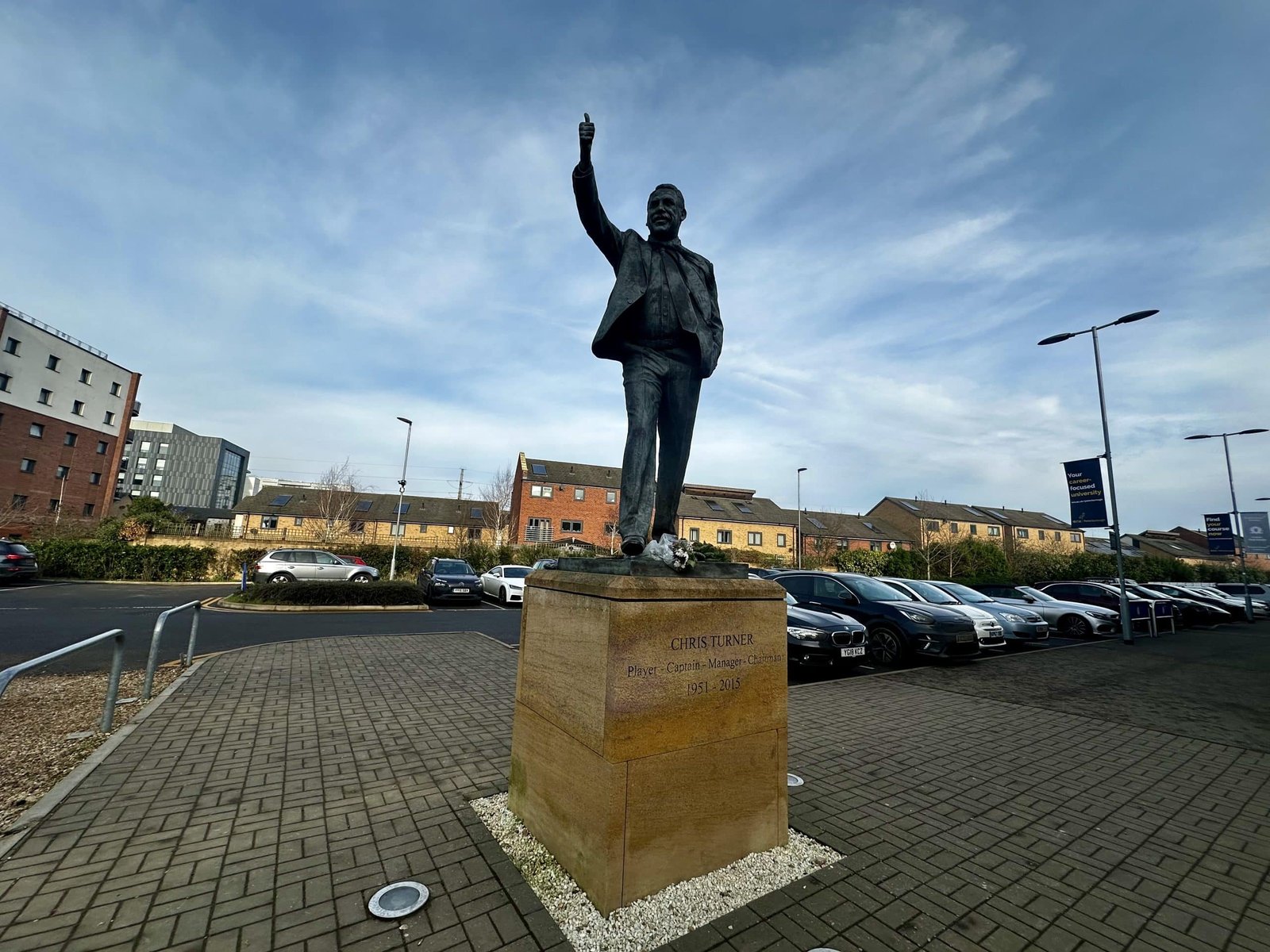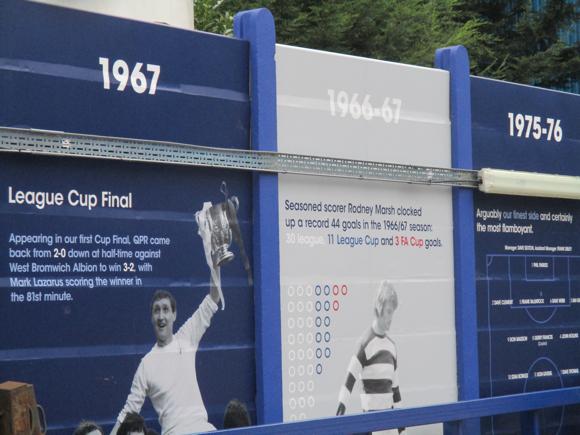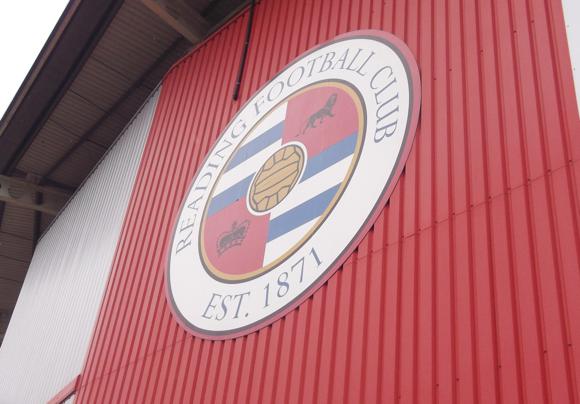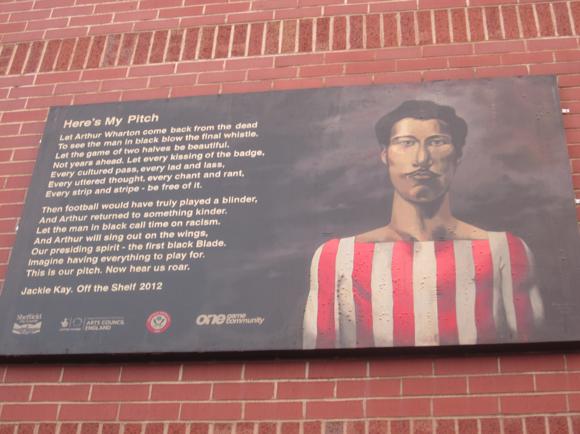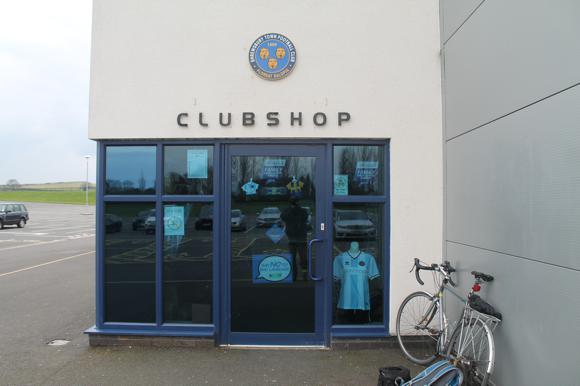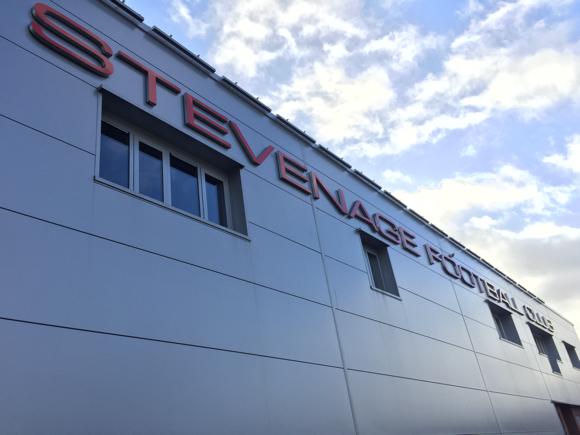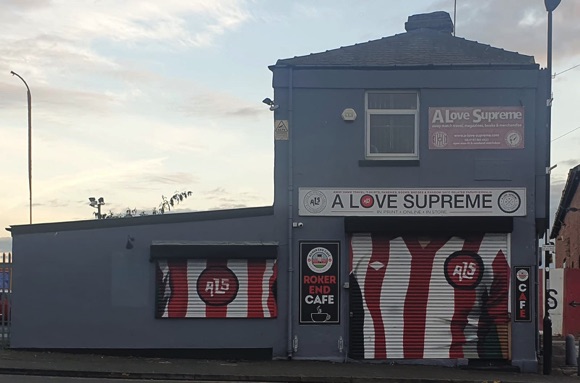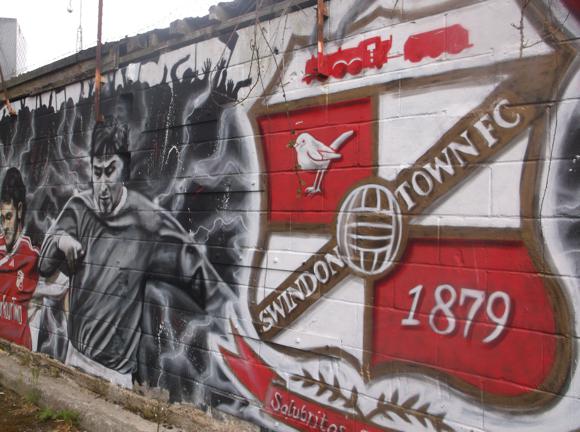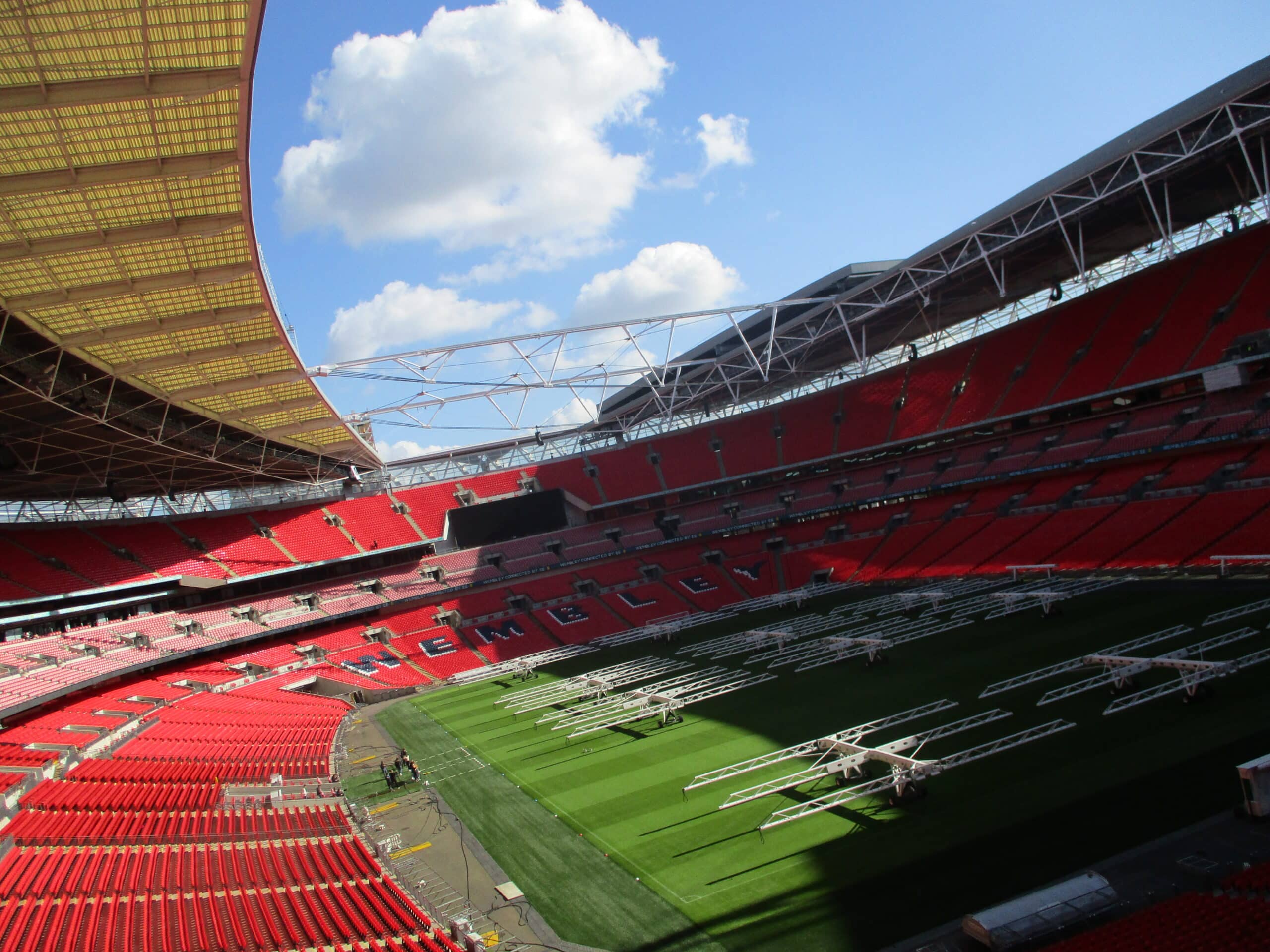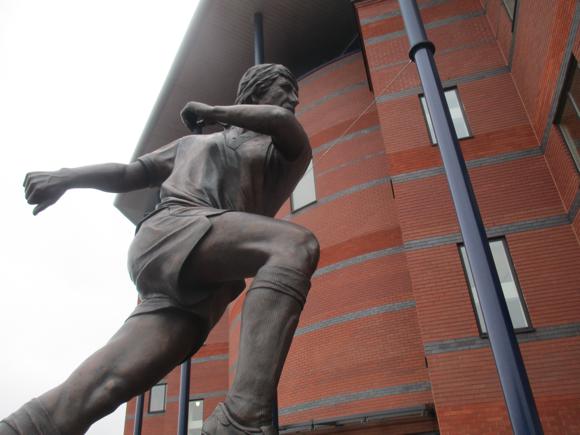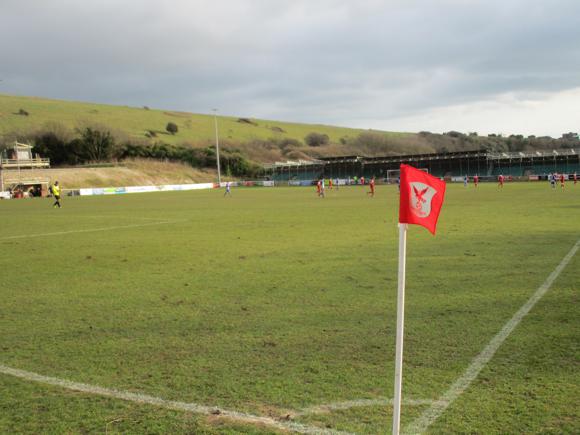A fan’s guide – the club from early doors to today
‘Play up Pompey!’ goes the chant, said to be the oldest in football – but the Pompey Chimes would have died out completely had loyal fans not stepped in and saved Portsmouth FC in 2013.
Twice league champions, Pompey should have been on the crest of a wave after winning the FA Cup in 2008. Instead, there followed four years of unpaid salaries, irresponsible management and a three-flight dive from top to bottom tiers.
After supporters salvaged their beloved club, one of the richest men in entertainment, former CEO of Disney, Michael Eisner, stepped in, and is now not only overseeing operations but sensible improvements to venerable Fratton Park, home of PFC since the beginning.

Formed in 1898, Portsmouth were Southern League champions when they joined the inaugural Third Division in 1920. A decade later, with manager Jack Tinn in place, Pompey climbed up the First Division and reached two FA Cup finals in five years, losing both.
Tinn was still in charge when Pompey lifted the trophy, shortly before the outbreak of World War II. Pre-match favourites Wolves were swept aside 4-1, captain Jimmy Guthrie’s side 3-0 up just after half-time.
Portsmouth would keep the trophy for a record seven years during the war – then lose it on a two-leg Third Round tie with Birmingham.
Tinn bowed out in 1947, Bob Jackson inheriting his side of few stars but a great team ethic. Interplay between ‘Jolly’ Jack Froggatt, Jimmy Scoular and ‘Gentleman’ Jimmy Dickinson marked Pompey’s 50th anniversary season in 1948-49 by going 13 games unbeaten. Winning their first league title, Portsmouth missed out on the double at the hands of Leicester in the FA Cup semi-final.

Portsmouth held on to the title on goal average over Wolves the following season. Dickinson stayed at Fratton Park until the early 1960s, notching a record number of appearances for his only club – but seeing Pompey sink as far as the Third Division.
In the 1970s, manager after manager struggled against constant financial troubles and fire sales of playing staff. Alan Ball took Portsmouth back to the First Division, if only for one season, while Jim Smith took Pompey to within one goal of promotion to the Premier League and within a penalty shoot-out of beating Liverpool to reach the FA Cup final in 1992.
Terry Venables also took Pompey within reach of cup and league glory – before walking away with £250,000 two years after his original £1 investment. The club entered administration and looked doomed.
n stepped Serb-American entrepreneur Milan Mandarić, once chummy with George Best and keen to get into the English game. Hiring Harry Redknapp as manager and splashing cash to beat clubs stung by the collapse of ITV Digital, Mandarić got Pompey back to the Premier.

IPortsmouth kept spending big when French-Israeli businessman Alexandre Gaydamak bought the club from Mandarić. High-earning names – Sol Campbell, Sulley Muntari, Niko Kranjčar, Nwankwo Kanu – took Pompey to eighth place in the Premier and the FA Cup final.
Beating 1-0 at Manchester United with a Muntari penalty, then WBA 1-0 at the Wembley semi, Redknapp’s Pompey did not miss their chance to win their first major silverware since the Jimmy Dickinson era. A single Kanu goal settled matters against Cardiff.
Despite Redknapp’s departure, Portsmouth hit dreamland when Kanu struck a second Pompey goal to take them 2-0 up against Milan in their debut in Europe. Defeats at Braga and Wolfsburg ended hopes of progress beyond the UEFA Cup group stage.
In 2010, Portsmouth were banned from Europe altogether. With crucial goals from Frédéric Piquionne, Pompey had reached Wembley again, missed a penalty and lost to Chelsea 1-0 in the FA Cup final. Qualified for the Europa League, Portsmouth had too many unpaid bills and salaries stacked against them to compete.
The club’s complete closure was announced that October – a little prematurely.

A plucky run under Steve Cotterill kept hopes alive in the Championship but the club was still financially toxic. Another pair of foreign hands, Vladimir Antonov’s, claimed Portsmouth FC in 2011 before the Russian was sought on an international arrest warrant.
Despite monumental debt, points deductions, relegation to League One and players leaving by the squad-load, Portsmouth kept going. An inexperienced team went winless for half the nightmare 2012-13 campaign.
With the club hitting the lowest tier and no relief in sight, the Pompey Supporters Trust stepped in to agree a deal with administrators. Portsmouth avoided relegation to the Conference – just – and slowly steadied their finances.
Under Paul Cook, Portsmouth clambered out of League Two. A 91st-minute goal by Plymouth in the Dockyard Derby put paid to play-off hopes in 2016 but Pompey soon challenged again and gained promotion under Cook, in 2017. Weeks later, the supporters’ trust agreed to sell the club to ex-Disney CEO Michael Eisner.

In 2019, Pompey added to the largest trophy cabinet on the South Coast by lifting the Checkatrade EFL Trophy against Sunderland at Wembley. A crowd of 85,000, the second-largest in Europe that weekend, saw the Blues win on penalties after a see-sawing game notable for a stunning curling lob from Jamal Lowe towards the 120th minute.
Losing two play-off semi-finals, one on penalties to Oxford, Pompey started 2021-22 still stuck in the third tier. The Cowley brothers, manager Danny and his assistant Nicky, need to go one better than their predecessor Kenny Jackett, who took Portsmouth close but not close enough.
Despite consistently good form at home, in 2023 the Cowleys were replaced by journeyman defender John Mousinho in his first managerial post. Savvy and motivational, Mousinho drew on nearly 20 years’ playing experience to initiate and extend Pompey’s unbeaten run into 2023-24.
Clinching the League One trophy in the club’s 125th year, the former PFA chairman struggled to keep Portsmouth afloat in their first Championship season since 2012, notching up a solitary win in the first ten league games of 2024-25.








Ground Guide
The field of dreams – and the story behind it
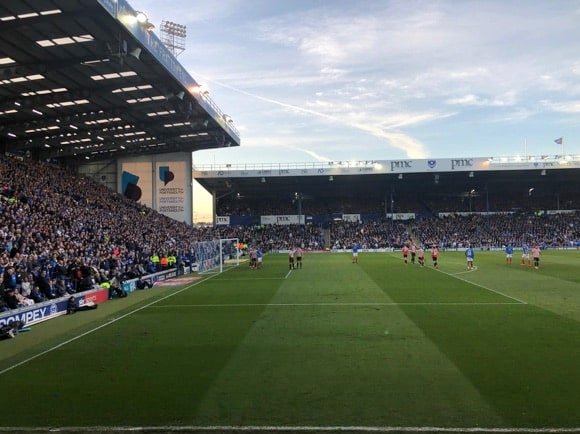





Occupying the same plot of land that brewer John Brickwood and Portsmouth club founders bought back in the 1890s, Fratton Park has a distinctively traditional air about it. It’s not only the mock-Tudor frontage where the South Stand meets the Fratton End – the away Milton End still feels old-school despite the roof put on it as recently as 2007.
The floodlights have the quaint look of those used in Subbuteo sets. Inside there’s signage from the era when the record attendance of 51,385 was set in 1949, with Pompey were in their pomp.
As if to underline the point, an image of Jimmy Dickinson, loyal hero figure from those days, is painted across the seats of the home Fratton End.
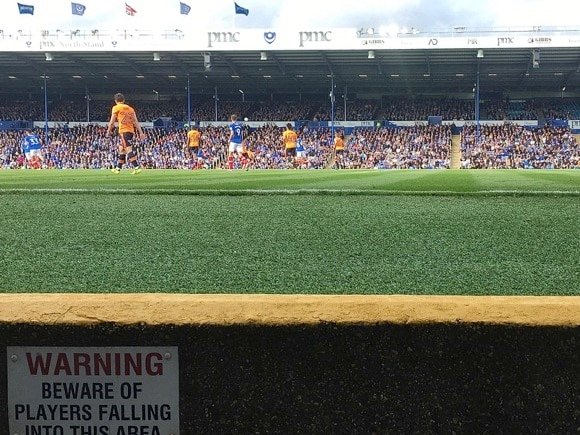






Today’s capacity is 21,000. Each two-tiered sideline stand, North and South, is pre-war, though the pavilion look created by famed stadium architect Archibald Leitch has been tempered by modernisation and conversion to all seating.
Visiting supporters are usually allocated half of the Milton Road end nearest the North Stand. With the sound of drums and bells, noise and atmosphere are heightened – averages gates of 18,000-plus were twice the average when Pompey were in League Two.
Recent years have seen a £15 million upgrade by the Eisner family, introducing Championship-standard match-day facilities while preserving the ground’s original charm. In the stands and concourses, PFC lager is served, while improved entrances and merchandise outlets at the Milton End complement a new TV gantry to record Portsmouth’s return to the big time.
getting here
Going to the ground – tips and timings
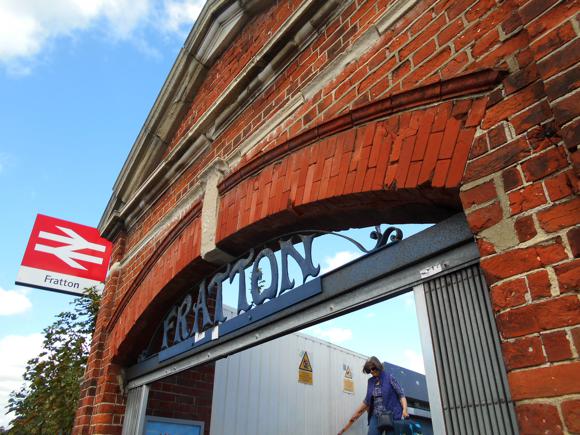
Fratton Park is a 10min walk from Fratton station, directly linked with London Waterloo and, one stop further down the line, the main station of Portsmouth & Southsea in town. It’s 3-4mins between the two stations, and services (£3.50) are regular if you’re coming from Portsmouth & Southsea, or 7-8mins from Portsmouth Harbour (£3.50) at the end of the line.
From Fratton station, head for Goldsmith Avenue via the footbridge – you’ll pass a Lidl store, Shell garage and mini roundabout towards the stadium. The away entrance is at the diagonally opposite corner – carry on past a Tesco Express and turn left up Apsley Road.
Alternatively, First Bus 1 heads to Frensham Road then Shepherds Crook every 10mins Mon-Sat, every 20mins Sun from The Hard/Gunwharf by Portsmouth Harbour. Both stops are good for the ground a 5min walk away up Frogmore Road, journey time 15mins.
The sat nav code for Fratton Park is PO4 8RA. The stadium car park on Anson Road (PO4 8SY) provides access to the home end, costs £10/vehicle and places are allocated on a first-come basis. Streets in the immediate vicinity of Fratton Park have restricted parking only, so you may find yourself with a ticket or your vehicle towed away. Miltoncross Academy (PO3 6RB), where Milton Road meets James Road, offers match-day parking at £6/car. There’s also 24hr parking at Fratton station, £2/car off-peak (peak hours Mon-Fri before 4pm), with 66 spaces. Alternatively, there are plenty of parking options around Portsmouth Harbour station, a quick, easy train hop to Fratton.
getting in
Buying tickets – when, where, how and how much




With a capacity of 21,000 and average gates of 16,000, availability shouldn’t be a problem. Tickets are usually sold for games a month in advance.
In the run-up to the game, the ticket office (Mon-Fri 9.30am-5.30pm) is at the club shop on Anson Road, then on match days, sales are through the ticket office (9am-half time or 5.30pm-half time for evening games) on Frogmore Road, in front of the mock Tudor façade. Phone sales (UK only 0345 646 1898, option 1) operate the same weekday hours as the ticket office, while the club also runs an online service.
Across-the-board admission prices are £24/£26 on match days, £18/£20 for over-65s, £16/£18 for 17-22s, £7/£8 for under-17s.
what to buy
Shirts, kits, merchandise and gifts


The Pompey Store (Mon-Fri 9am-5.30pm, match days) is behind the North Stand on Anson Road. Along with the home kit of classic Pompey blue, the away tops for 2021-22 are white with red-and-black sleeves, the third choice red-and-black halves.
A couple of books are worth perusing: Pompey the Island City, one of a series of recent club histories by Neil Allen, and Prosinečki in Blue by Gary Tipp, the story of a chaotic season featuring the mercurial, Marlboro-smoking Croat.
Where to Drink
Pre-match beers for fans and casual visitors



Away fans are generally welcome in the pubs around Fratton Park, with certain exceptions.
At the Shepherd’s Crook on Goldsmith Avenue, the current policy is to serve visiting supporters before the match, but not after – as this is a firmly partisan Pompey place, with a noisy approach to the pre-match build-up, away fans may want to consider another option nearby. Neutrals will enjoy the memorabilia and beer garden, and banter with older regulars who’ve seen it all at Fratton Park.
A little further away, where Velder Avenue meets Eastern Road by Milton cemetery, the Good Companion is a family-friendly choice for many visiting supporters, with plenty of TV sport and a full menu.
On Milton Road behind the away end, standing on its own on the corner, the Milton Arms has been run three former Pompey players in its time, and now accommodates visiting supporters on match days. Just as well, as it has big-screen football, pool, darts and a decent kitchen. If you’re sticking around afterwards, the adjoining barn hosts live music until late. Barbecues in summer.
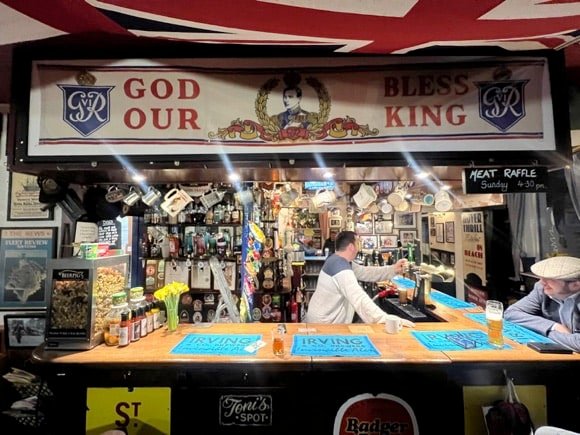
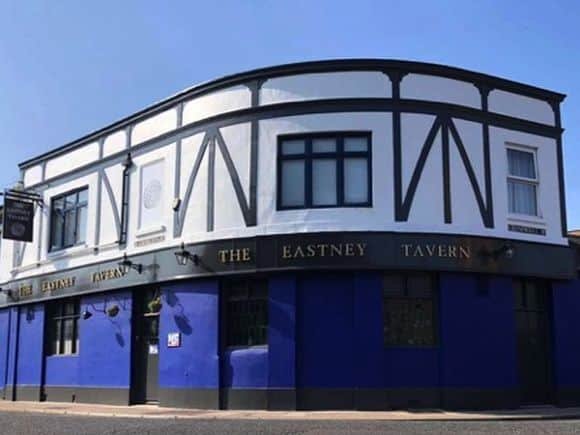
In the St Georges industrial estate near the stadium, the Staggeringly Good Brewery opens its tap room from noon on Saturday match days, serving its dinosaur-themed house beers such as StaggerSaurus Session IPA and Dippa Double IPA. There’s usually a convivial mix of home and away supporters.
If you’re walking up from the Southsea seafront 15-20 minutes from Fratton Park, you’ll find top-quality traditional dishes, real ale and live TV games at the Eastney Tavern, one of Portsmouth’s historic old hostelries, regularly featured in the Good Pub Guide.
Among the many options on and off main Albert Road are the memorabilia-laden Phoenix on Duncan Road and the fully independent Merchant House on Highland Road, a corner pub in post-industrial garb serving a regular and evolving range of craft beer, and award-winning street food.







